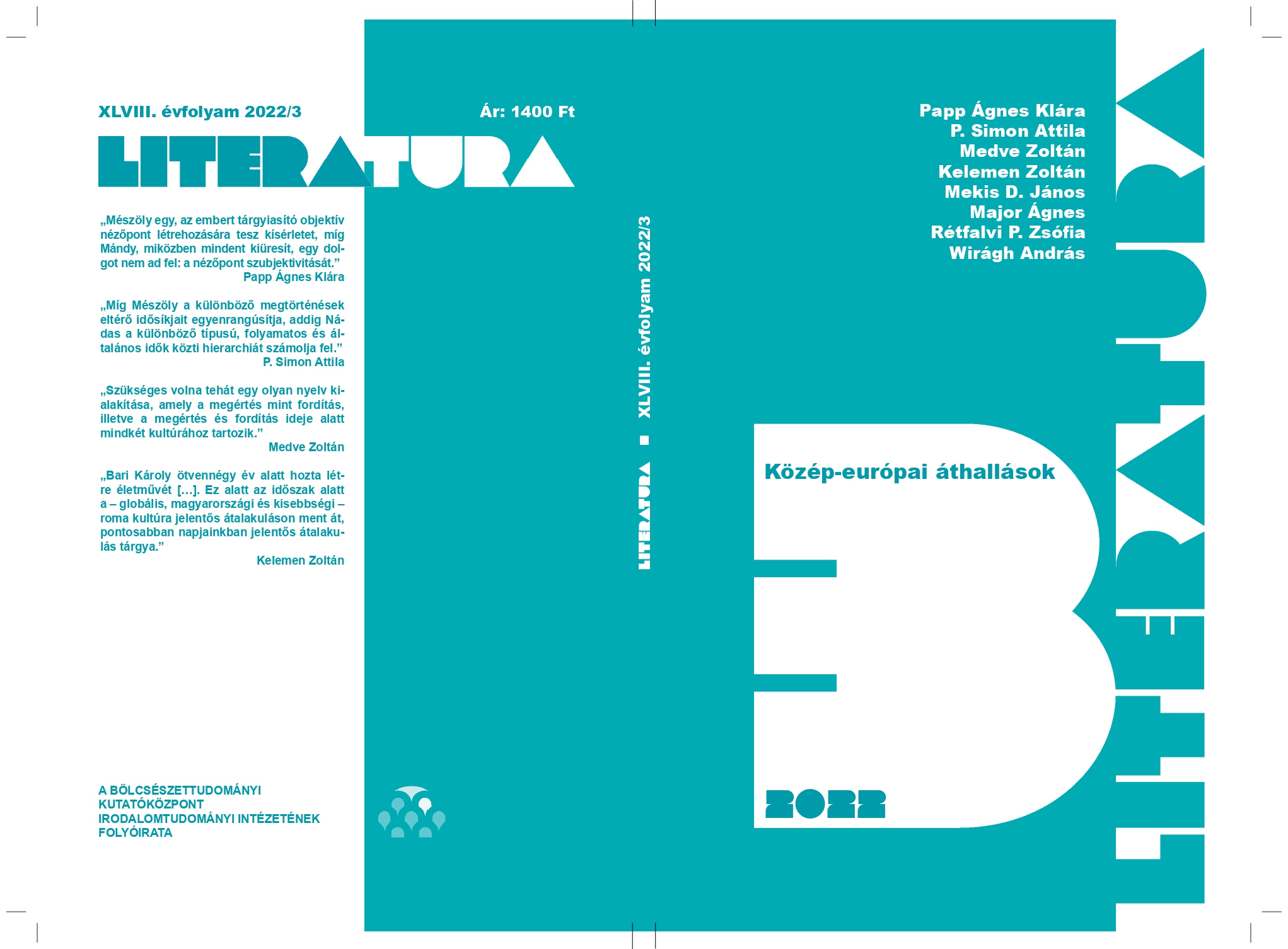“After all, there is no more time”
Mészöly, Mándy and the Objects
Abstract
This paper deals with the question of Miklós Mészöly’s and Iván Mándy’s attitude to objects and objectivity. My contention is that the two authors represent two approaches: while Mészöly creates a poetics of sight, Mándy creates a poetics of sound. Hence their fundamentally different ways of writing: Mészöly’s desanthropomorphisation, his depersonalized narrative, the timelessness of his descriptions, Mándy’s anthropomorphisation, his narrative approaching live speech, his techniques of evoking the past. Behind Mészöly’s objectivity and impersonality lies an epistemological pessimism, influenced by French existentialism, absurdist literature and the nouveau roman. This raises two related questions: on the one hand, what is the relationship of Mándy’s works to the material world they evoke; on the other, what kind of world literary trend this approach fits into.



